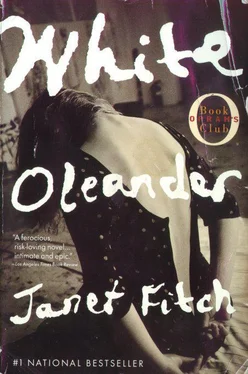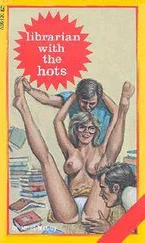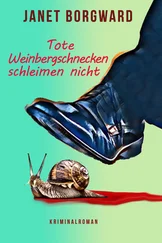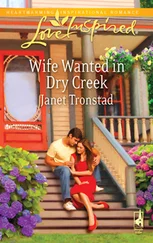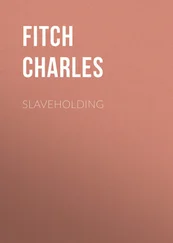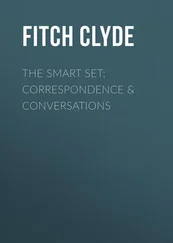Janet Fitch - White Oleander
Здесь есть возможность читать онлайн «Janet Fitch - White Oleander» весь текст электронной книги совершенно бесплатно (целиком полную версию без сокращений). В некоторых случаях можно слушать аудио, скачать через торрент в формате fb2 и присутствует краткое содержание. Жанр: Современная проза, на английском языке. Описание произведения, (предисловие) а так же отзывы посетителей доступны на портале библиотеки ЛибКат.
- Название:White Oleander
- Автор:
- Жанр:
- Год:неизвестен
- ISBN:нет данных
- Рейтинг книги:3 / 5. Голосов: 1
-
Избранное:Добавить в избранное
- Отзывы:
-
Ваша оценка:
- 60
- 1
- 2
- 3
- 4
- 5
White Oleander: краткое содержание, описание и аннотация
Предлагаем к чтению аннотацию, описание, краткое содержание или предисловие (зависит от того, что написал сам автор книги «White Oleander»). Если вы не нашли необходимую информацию о книге — напишите в комментариях, мы постараемся отыскать её.
White Oleander — читать онлайн бесплатно полную книгу (весь текст) целиком
Ниже представлен текст книги, разбитый по страницам. Система сохранения места последней прочитанной страницы, позволяет с удобством читать онлайн бесплатно книгу «White Oleander», без необходимости каждый раз заново искать на чём Вы остановились. Поставьте закладку, и сможете в любой момент перейти на страницу, на которой закончили чтение.
Интервал:
Закладка:
Then she might take a few interviews, or rent a white convertible for a spin down the beach, where she’d pick up a young man with clear eyes and sand in his hair, and make love to him until he wept with the beauty of it. What else would you do when you were acquitted of murder?
It was too much to imagine her tempering her joy with a moment of grief, a moment for the knowledge of what her triumph had cost. I couldn’t expect that from her. But I had seen her remorse, and it had nothing to do with Barry or anyone else, it was a gift offered despite a price she had had no way to estimate then, it could have been heavy as mourning, final as a tomb. No matter how much she had damaged me or how flawed she was, how violently mistaken, my mother loved me, unquestionably.
I thought of her, facing a court of law without the pawn formation of my lies. The queen stripped bare, she had mastered the end game on her own.
Paul rolled a Drum cigarette, the shreds like hair as he lifted them from the bag, tore the shag from the ends, lit it with a match scraped under the box that served as our end table. “You want to go call her?” We couldn’t afford a phone. Oskar Schein let us use his.
“Too cold.”
He smoked, the ashtray resting on his chest. I reached over and took a puff, handed it back. We had come such a long way together, Paul and I. From the apartment on St. Marks to the squat in South London, an uninsulated barge in Amsterdam, now Senefelderstrasse. I wished we knew someone in Italy, or Greece. I hadn’t been warm since I left L.A.
“Do you ever want to go home?” I asked Paul. He brushed an ash from my face. “It’s the century of the displaced person,” he said. “You can never go home.”
He didn’t have to tell me, he was afraid I was going to go back. Become an American college coed on the three-meal plan, field hockey and English comp, and leave him holding the foster kid bag. There it was. On the one hand, there was Frau Acker and the rent, my cough, Paul’s print run. On the other, a place with heat, a degree, decent food, and someone taking care of me. I’d never told him, sometimes I felt old. How we lived was depressing. Before, I couldn’t afford to think about it, but now that she was out, how could I not. And now Oskar Schein was asking if he could see me alone, take me to dinner, he wanted to talk to me about a gallery show. I’d put him off, but I didn’t know how long I could hold out. I found him attractive, a bearish man with a cropped silver beard. Lying down for the father again. If it weren’t for Paul, I’d have done it months ago. But Paul was more than my boyfriend. He was me.
And now my mother was calling me, I didn’t have to get on the phone. I could hear her. My blood whispered her name.
I stared at her photograph, waving in the California sunlight. At this very moment, she was out. Driving around, ready to start again fresh, so American after all. I thought of my life bundled in suitcases against the wall, the shapes I had taken, the selves I had been. Next I could be Ingrid Magnussen’s daughter at Stanford or Smith, answering the hushed breathless questions of her new children. She’s your mother? What’s she really like? I could do it. I knew how to trade on my tragic past, skillfully revealing my scars, my foster kid status, I’d perfected the art with Joan Peeler. People took me up, made me their project, their pet. They cast themselves as my champions, and I let them. I hadn’t come this far to be left at some river bottom among the wrecked cars.
To be my mother’s daughter again. I played with the idea like a child with a blanket, running it between my fingers. To be lost in the tide of her music again. It was an idea more seductive than any man. Was it really too late for childhood, to crawl back into the crucible, to dissolve into the fire, to rise without memory? The phoenix must burn., . How would I dare? It had taken me this long to be free of her shadow, to breathe on my own, even if in this singed-hair space-heater Europe.
I lay in Paul’s arms, thinking how we’d gone up to Denmark last summer to find Klaus Anders. We located him in Copenhagen. He was living in a shabby flat with his children, it smelled of turpentine and stale milk. His wife was off working. It was three in the afternoon when we came calling, he had on a blue seersucker bathrobe covered with paint. There were two kids under five, my half sister and brother from his third or fourth marriage, on the couch watching TV. The girl had strawberry jam in her hair, the baby needed changing, and I saw the chain of disaster could move laterally as well as up and down.
He’d been painting, a biomorphic abstraction that looked like an old shoe with hair. He offered us Carlsbergs and asked about my mother. I drank and let Paul do most of the talking. My father. His handsome forehead, his Danish nose, just like mine. His voice lilting with its accent, humorous even when expressing regret. A man who never took anything seriously, least of all himself. He was pleased I was an artist, unsurprised my mother was in prison, sorry we’d never met. He wanted to make up for lost time, offered to let us stay, we could sleep on the couch, I could help out with the kids. He was sixty-one years old, and so ordinary.
I had felt like my mother, sitting in his living room, judging him and his sticky children and the TV that never turned off. The old futon-couch, scarred teak coffee table with rings. Canvases on the walls, encrustations like brain coral and colon cancer. We ate cheese and bread, the large jar of strawberry jam. I gave him the address of the comic book store, said I’d be in touch. It was the first time I’d ever wanted to move on, be the first person out of the room.
Afterward we went to a student bar near the university and I got thoroughly, sloppily drunk, and threw up in the alley. Paul got me on the last train back to Berlin.
Now I took Paul’s hand in the bed, his right in my left, laced my fingers through his, my hands large and pale as winter, my identity stitched in the whorls of their fingertips, Paul’s hands dark from graphite and fragrant with Drum and kebabs. Our palms were the same size but his fingers were two inches longer. His beautiful hands. I always thought if we ever had children, I hoped they’d have them.
“So what happened with the printer?” I asked. “He wants cash,” Paul said. “Imagine.” I turned our hands, so we could examine them from each side. His fingers practically touched my wrists. I traced along the sinews of his hand, thinking how in less than a day I could be back in the States. I could be like my mother, like Klaus. It was my legacy, wasn’t it, to shed lives like snakeskin, a new truth for each new page, a moral amnesiac?
But a disgrace. I’d rather starve. I knew how to do it, it wasn’t that hard.
I looked around our flat, the rain-ruined walls, the few bits of furniture, battered pressboard chest we found in an alley, the dusty velvet curtain concealing our tiny kitchen. Paul’s drawing table, his papers and pens. And the suitcases, ranged against the wall, filling the rest of the floor. Our life. The phoenix must burn, my mother had said. I tried to imagine the flames, but it was too cold. “Maybe I’ll sell the museum,” I said.
Paul traced the lacy dogbite scars on my hand. “I thought you told Oskar you wouldn’t.”
I shrugged. I would never reach the end of what was in those suitcases, those women, those men, what they meant to me.
These rooms were only the start. There were suitcases inside of suitcases I had not even begun to unpack. You want remember, so just remember.
I slipped my hands up under the wool shirt I’d bought him at the flea market. He flinched with the cold, then allowed me to warm them against his skinny ribs. As we drew close, murmuring softly into each other’s necks, the Herald Tribune slid off the feather bed and fell to the floor in a soft cascade, burying my mother among her headlines, news of other crises and personages. We shed our jackets and our pants to make love, but kept our shirts and socks on. I knew I was making a choice. This, now, suitcases, Paul. It was my life, a trait and not an error, written by fire on stone.
Читать дальшеИнтервал:
Закладка:
Похожие книги на «White Oleander»
Представляем Вашему вниманию похожие книги на «White Oleander» списком для выбора. Мы отобрали схожую по названию и смыслу литературу в надежде предоставить читателям больше вариантов отыскать новые, интересные, ещё непрочитанные произведения.
Обсуждение, отзывы о книге «White Oleander» и просто собственные мнения читателей. Оставьте ваши комментарии, напишите, что Вы думаете о произведении, его смысле или главных героях. Укажите что конкретно понравилось, а что нет, и почему Вы так считаете.
